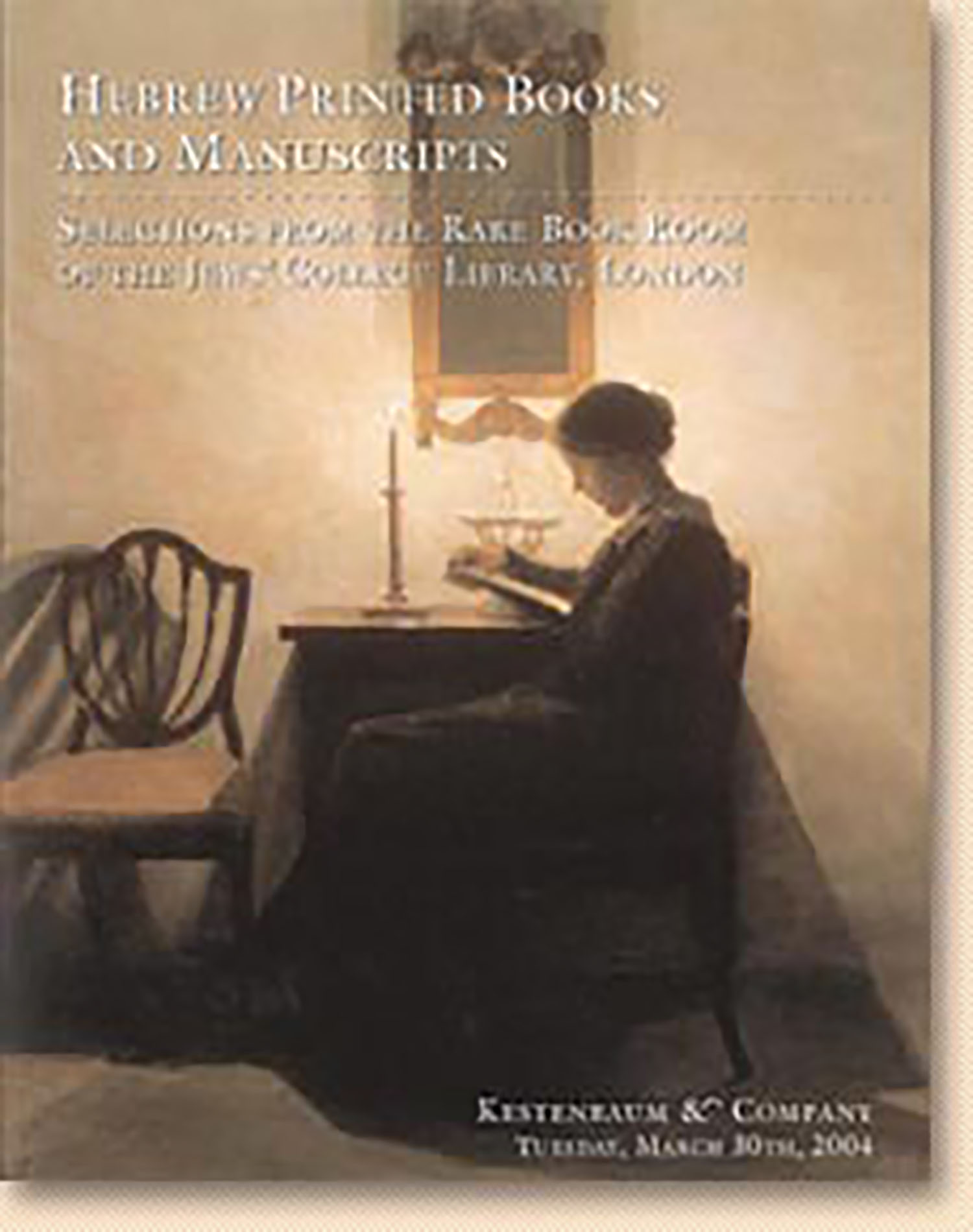(1723-1805). Zichronoth R. Dov Ber Me’Bolechow

AUCTION 23 |
Tuesday, March 30th,
2004 at 1:00
Hebrew Printed Books & Manuscripts from The Rare Book Room of the Jews College Library, London The Third Portion
Lot 211
DOV BER OF BOLECHOW.
(1723-1805). Zichronoth R. Dov Ber Me’Bolechow
Bolechow (Galicia): Late 18th Century
Est: $5,000 - $7,000
PRICE REALIZED $3,000
Dov Ber Bolochower (a.k.a. Birkenthal which remained his adopted German name in accordance with the decree of Joseph II in 1772), was one of the most important Hebrew memoirists of his time. He was a traditional Jewish scholar and leader of the Bolechow community. His father, an international wine dealer, had contact with Polish and Hungarian nobles and priests who taught Polish, Latin, German and French to his son. As a result, Dov Ber’s affinity with language enabled him to serve as interpreter and advisor to Rabbi Chaim Hakohen Rapaport, Chief Rabbi of Lemberg, during the famous debate with the followers of Jacob Frank in 1759. Ber writes that his previous study of the conversionary tract “Samuel Rabin” (Polish translation of the fabrication “Rabbi Samuel”) published in Lublin in 1753, familiarised him with Christian polemical arguments. This proved invaluable in the debate with the Frankists in 1759: “The reward for my efforts in [undertaking] this distateful study stood me and all Israel in good stead at the time of the famous debate in Lvov with the evil congregation, the sect of believers in Shabbetai Zevi, when I served as translator from Polish to Hebrew and vice versa, and stenographer of all the questions and responses of the great luminary Rabbi Chaim Kahana Rapaport, of blessed memory, chief justice of Lvov and environs, in 1759 in the great cathedral of Lvov.”
These memoirs contain many economic and social details invaluable for the study of 18th century Eastern European Jewish history. They include information about the Va’ad Arba Aratzoth- the Council of the Four Lands, the Polish Jewish census (1764) and many other interesting historical, social and financial details pertaining to the commerce and politics of the social milieu.
The text is divided into two parts, the first is Dov Ber’s autobiography and memoirs and the second containing Hebrew translations of various historical, geographical and ethnographical works pertaining to the nations of the Middle East and their relations with the nation of Israel. The autobiographical part was eventually published and translated into Yiddish and English with a scholarly introduction and notes by Marc Wischnitzer in Berlin, 1922. The second section has never been published. Wischnitzer states in his introduction (p.15) that had Rabbi Dov Ber published his translations, they would have helped the development of Hebrew writing, especially in the fields of science and geography. “As the author’s Hebrew style is concise, scientific and flowing, unlike the empty flowery language used in the 18th century.”
Included is the book Relazioni Universali by Giovanni Botero of which Bolochow translated sections concerning Solomon and the Queen of Sheba. He also translated sections of “Old and New Testament Connected to the History of the Jews and Neighboring Nations” (London, 1716-18) by the English scholar, Orientalist and Hebraist Humphrey Prideaux (1648-1724). Bolechow was also familiar with the works of Flavius Josephus, the Church Fathers, Grotius, Herodotus and many other historical and political works. He sometimes included his own comments on the “lies of Chrtistian writers.”
